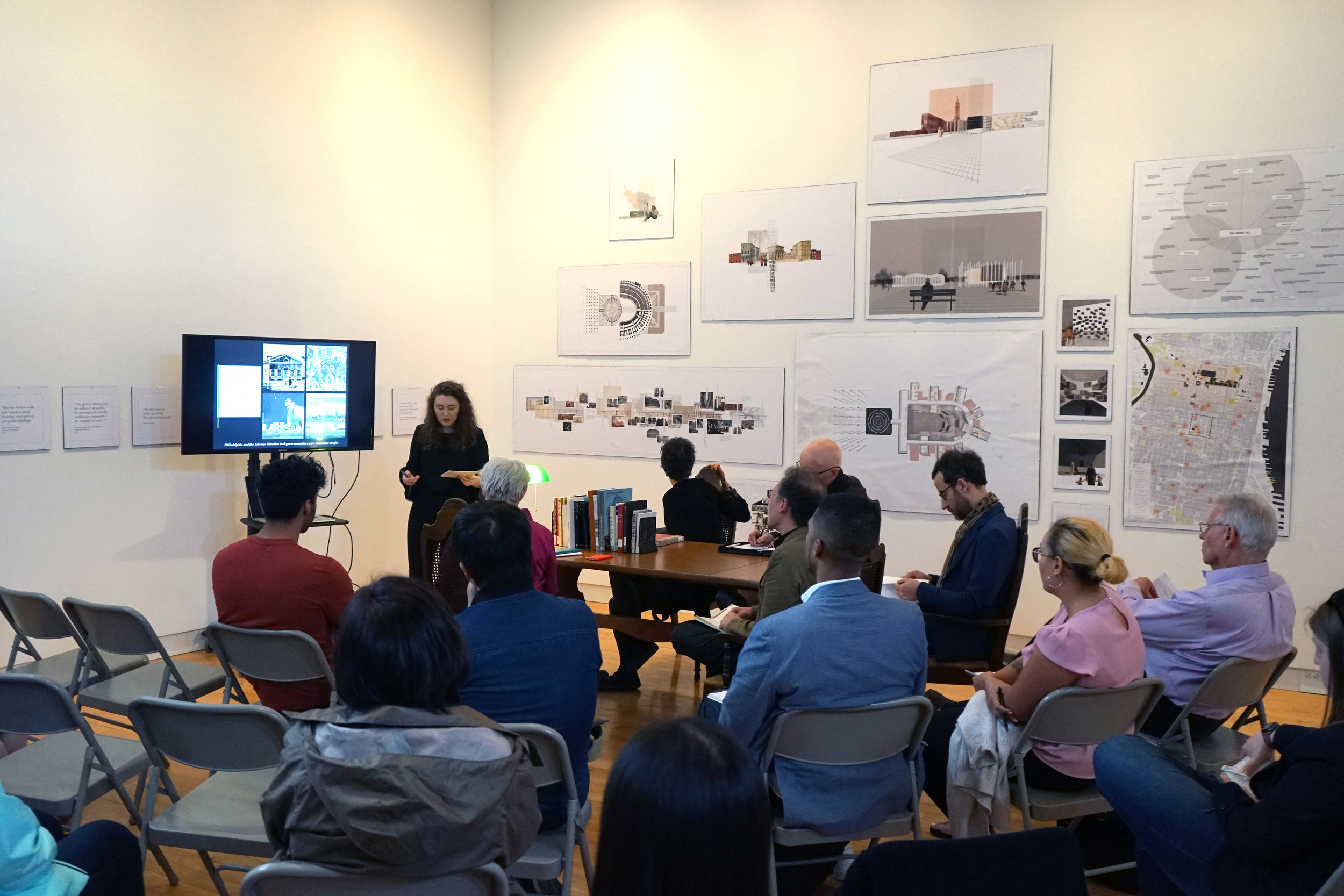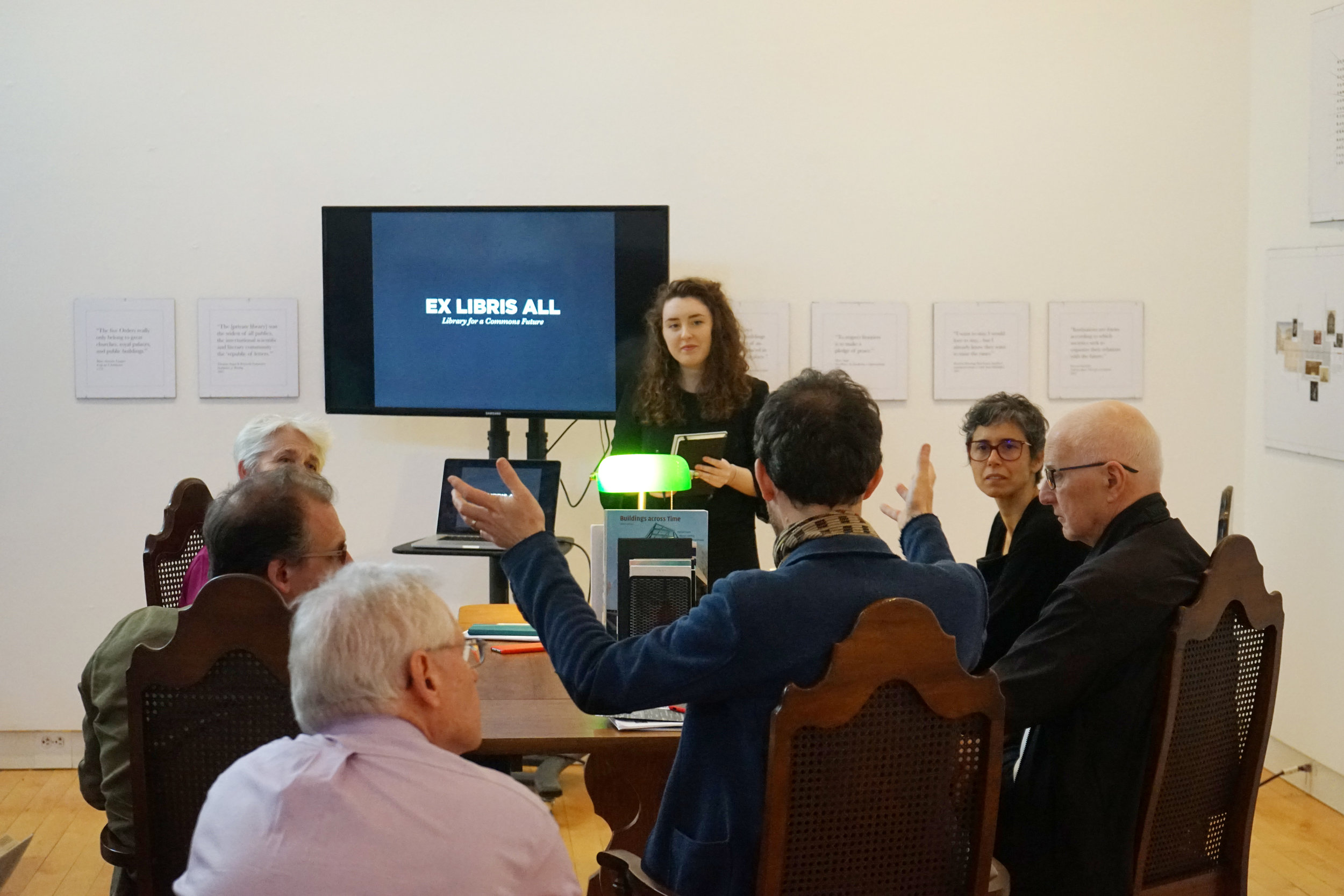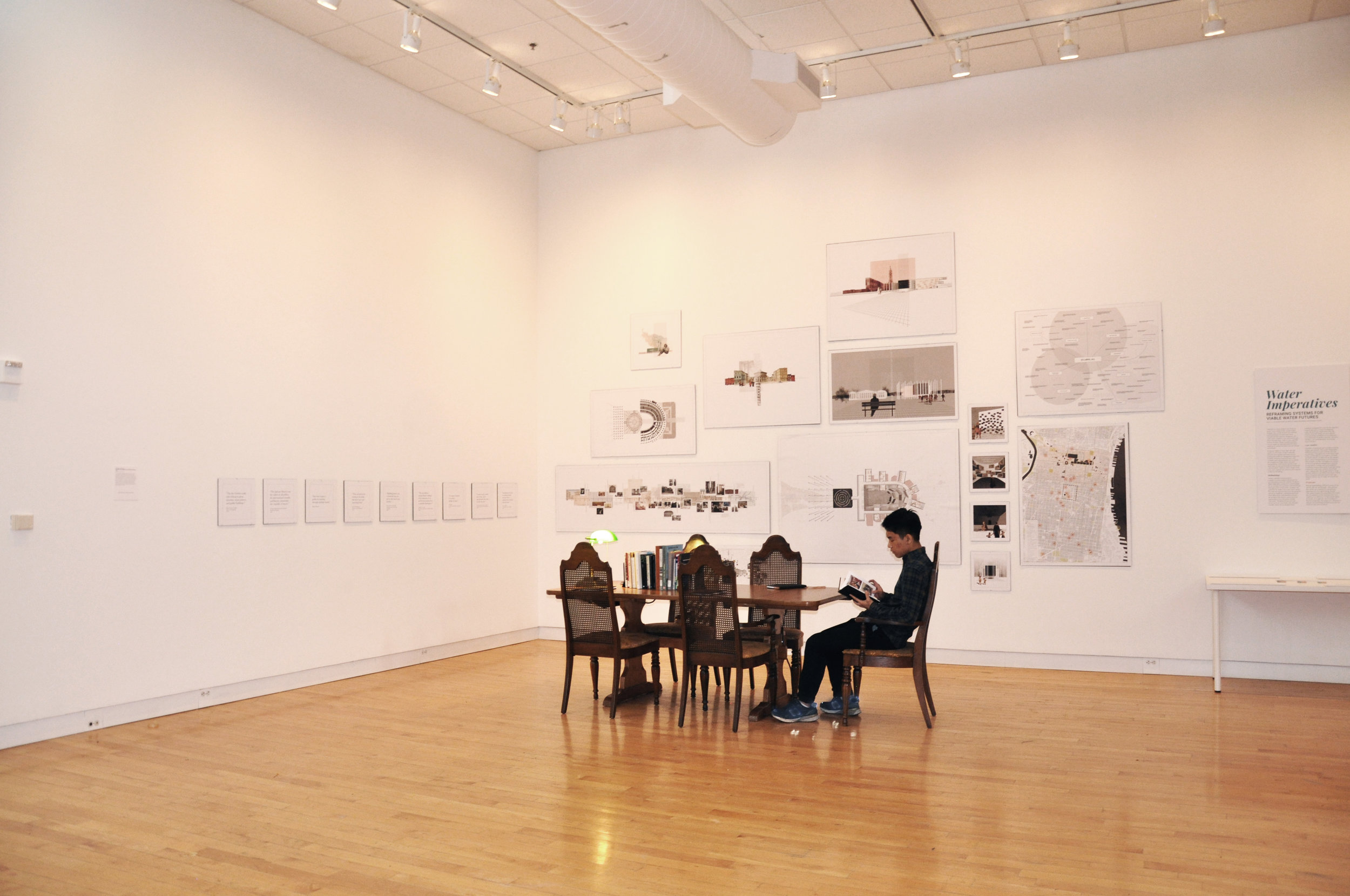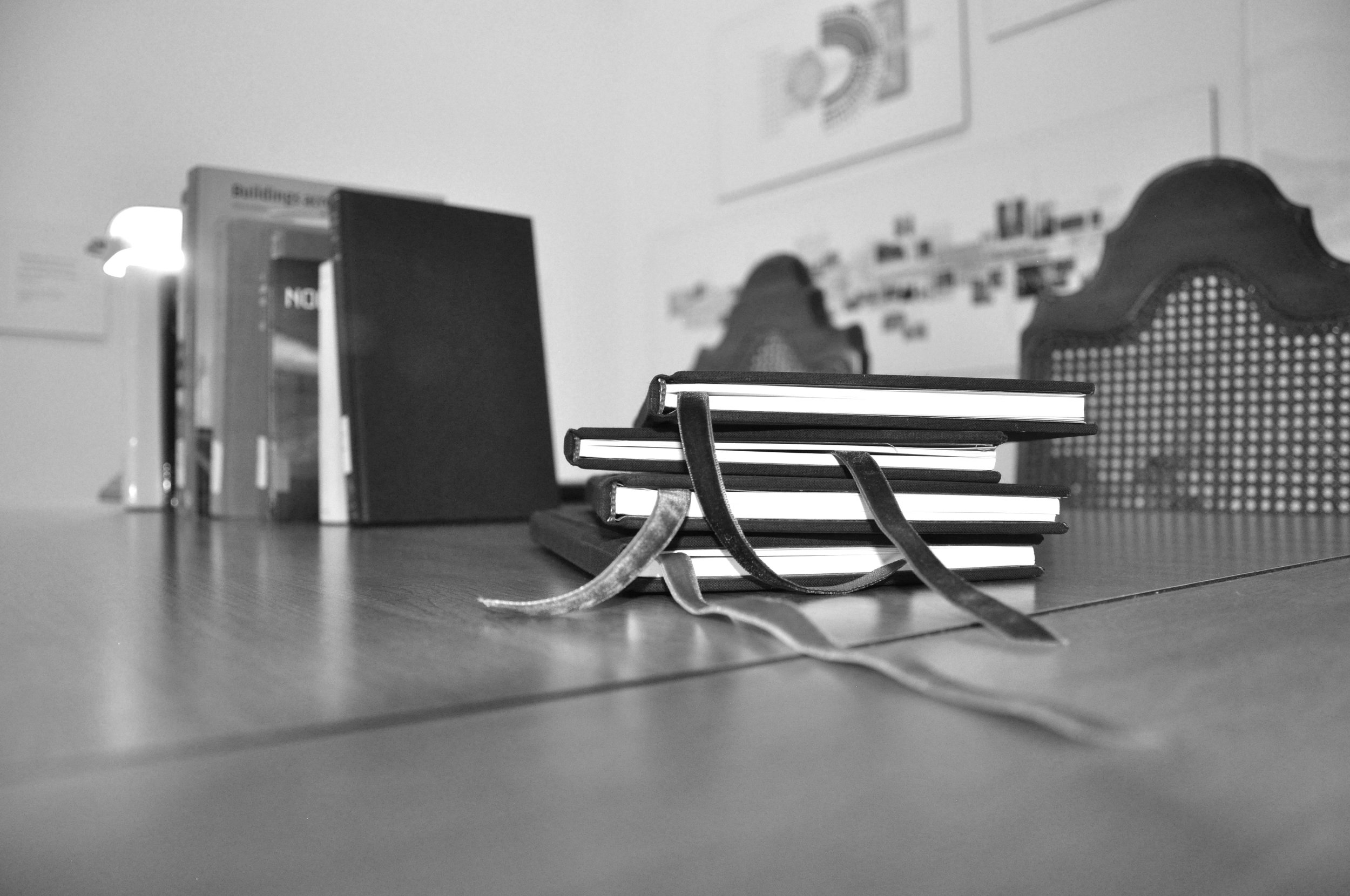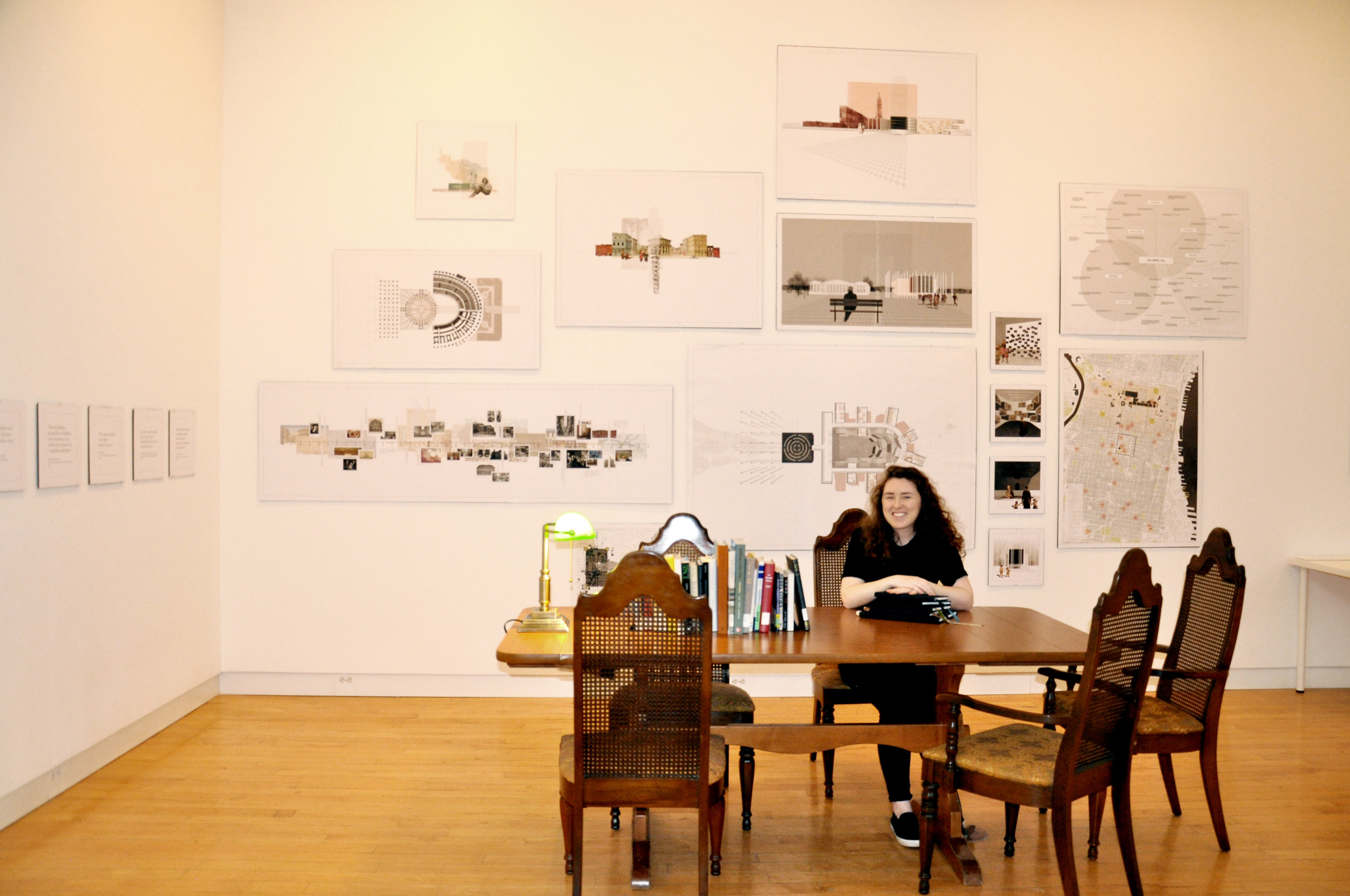EX LIBRIS ALL: Library for a Commons Future
In an era defined by privatization and state apathy towards the public realm, spatially networked alliances between community initiatives are essential for the future. This projects calls for the reimagining of the historical archetype of the library as civic institution as a means of offering physical and ideological space for the civic sphere. The exhibition of this project expresses this thesis in two parts: (1) through the accumulation and synthesis of resources in the form of books written and compiled for (2) the library, designed to house community initiatives already in existence throughout the chosen city of Philadelphia. Entitled Ex Libris All, this compilation of form and resources forms a body of work that mimics the thesis itself: where spatially networked resources unite to support communities outside the realm of the market and the state.
In a backdrop of privatization and state apathy, how can the organizational and architectural model of the library leverage its institutional history to the nurturing of a commons institution?
The library occupies a unique niche in the collective cultural imagination of Americans and has an unrivaled opportunity to mitigate the unequal distribution of resources to the masses. As an organizational model, the library’s purpose is simple: to collect, store, and provide access to knowledge. As a political institution, the library represents a pinnacle of cultural knowledge and power--the primary point of access to objective truth for a curious citizenry. As an urban space, the library acts as a public recreational space while simultaneously providing simple human needs like shelter, employment assistance, and interpersonal connection. As an architectural symbol, the library acts as a reference to historical democratic ideals of free assembly and free speech. The library accomplishes all this without conforming to the pressures of the market.
But in a time of extreme political turbulence, reduced funding for social services, obscured privatization, and unregulated surveillance of spaces masquerading as public fora, the role of the library has expanded. No longer simply needed to collect knowledge, the library is now responsible for providing free educational programs for kids after school, free access to ever-evolving technology, free assistance with research and resource questions, and more. More than a holy space for solitary research pursuits, it’s a physical space unencumbered by the burdens of censorship and paywalls that virtual spaces suffer; it is a tool for empowerment in historically disenfranchised communities, arming citizens with evidence and solutions to problems often created by unsympathetic market forces or apathetic government inaction.
The Atlas of Commoning—the framework within which this thesis is positioned—is a collection of real interventions in the civic sphere around the world. These bottom-up, local initiatives are explicitly operating outside the realm of state and market; however, must often necessarily emerge from those top-down forces. The process of emancipation from these existing institutions of market and state is a crucial step in the practice of commoning and is reliant on a strong network of other commons: a system built on cooperation.
Bottom-up community organizations that are focused on providing social services, monitoring community development, and advocating for the rights of historically disenfranchised residents are best equipped to tackle issues of gentrification, housing, and access to resources, but are often unable to scale their efforts to that of the market or state. The historical model of the library can be adapted to fit this purpose, acting as a centralized, symbolic anchor point through which these community resources might identify common ground in order to scale up their operational scope.
Known today as the birthplace of America and a major node within the Northeast megalopolis, the City of Philadelphia has a long history concerning issues like contested land ownership, utopian planning ideologies, and radical political undercurrents. These narrative threads are tied not only to the city, but can be extrapolated to the history of the library and the country as a whole. It’s therefore appropriate to consider Philadelphia as a foundational archetype in the ideological premise of democracy: a city built on concepts of freedom, symbolism, and unity. Philadelphia also suffers the urban ailments common to cities today; vacancy, gentrification, and the uneven distribution of resources are particularly prevalent in South Philadelphia. Assembling disparate resources and local initiatives in a disinvested South Philadelphia neighborhood in the form of a library offers space for the commons, acting as a symbol for civic-minded, bottom-up institutionality for the future.
Historically, the architecture of the library has been concerned primarily with communicating the power of objective truth. But as we are propelled into a future of political and climatic uncertainty, the architecture of the library must adapt; like a codex, the building must tell a story: a playful mimicry of institutionality, a bowl-like reading room surrounded by resources in text and human form, otherworldly light, endless labyrinthical shelving… an architecture that embraces multiplicity, evolution, scale, ambiguity, and contradiction.
This content is a product of research & design work conducted as part of my Masters of Urban Design thesis project at Carnegie Mellon University in 2019.














